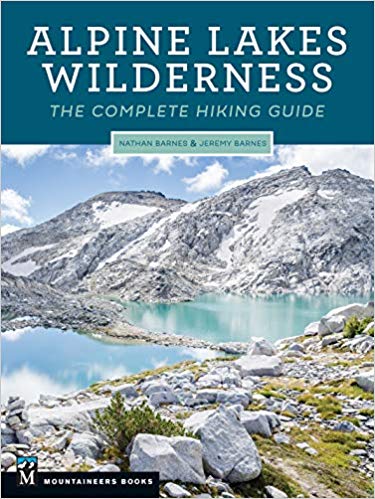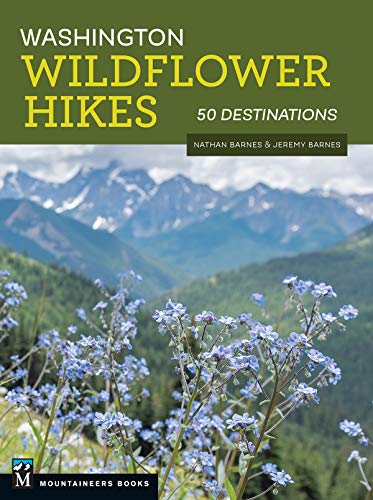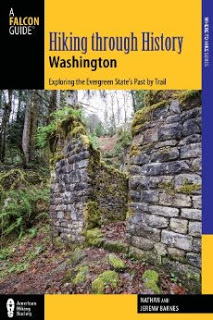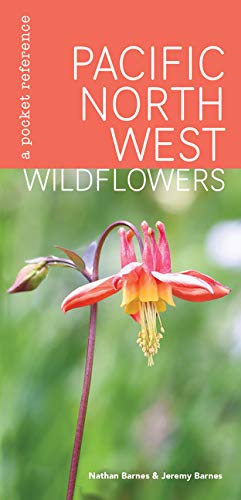Mt. Teneriffe - Kamikaze Trail
Try this alternative route to the summit of Mt. Teneriffe by way of a rushing waterfall.
Total Distance: 6.5 miles
Total Ascent: 3800ft
Highest Point: 4788ft
Total Ascent: 3800ft
Highest Point: 4788ft
To get there, take I-90 to Exit 32 at 436th Ave. Head to the left over the freeway to North Bend Way and take a left. Mt. Si Road will very shortly appear on the right. Follow Mt. Si Road past the parking lots for Little Si and Mt. Si to the school bus turnaround where the maintained country road ends. Find a spot to park in the gravel turnaround and head up the gated road to the trail. View Google Directions >>
The route begins on the same logging road as the traditional route, following it for about a mile past overgrown water towers and a few abandoned spur roads before veering to the right through young alders and underbrush. The once-road gently hugs the side of Teneriffe through a talus field and over a few small streams until it connects with another trail at Kamikaze Creek. That path in turn steeply ascends along the creek past progressively more dramatic cascades before finally culminating in the 150-foot Kamikaze Falls. We were expecting a stream on our hike, but nothing of the magnitude of these falls. Perhaps more stunning with that the mountain currently thawing out, the falls are still well worth the trek up the mountain – water arcs over the edge of the rocks above you, only to quickly crash into a series of smoothed rocky outcroppings. Take a rest and have a snack: from this point forward, the trail becomes much more of a scramble.
Barely scraped into the side of the mountain, the bootpath is relentless. It rarely entertains the idea of switchbacks, ever-opting for the beeline to the summit, and only grudgingly deviating for massive boulders or impenetrable undergrowth. Cedars and firs stand in seas of salal as the trail gains elevation before beginning to thin and reveal views of Rattlesnake Mountain and Mt. Washington. Upon reaching the summit, soak up the views and take a well-deserved rest. Spy the haystack of Mt. Si just to the west, and neighboring Green Mountain immediately to the northeast. Mailbox Peak and McClellan Butte are to the east. On good days Glacier Peak, Mt. Baker and Mt. Rainier are all in attendance.
This was an excellent hike, though this route is not recommended for an inexperienced hiker. The steep inclines and rough trail are such that hiking poles are a necessity, especially on the descent. Today, there are other more environmentally sustainable routes up to Kamikaze Falls.
Barely scraped into the side of the mountain, the bootpath is relentless. It rarely entertains the idea of switchbacks, ever-opting for the beeline to the summit, and only grudgingly deviating for massive boulders or impenetrable undergrowth. Cedars and firs stand in seas of salal as the trail gains elevation before beginning to thin and reveal views of Rattlesnake Mountain and Mt. Washington. Upon reaching the summit, soak up the views and take a well-deserved rest. Spy the haystack of Mt. Si just to the west, and neighboring Green Mountain immediately to the northeast. Mailbox Peak and McClellan Butte are to the east. On good days Glacier Peak, Mt. Baker and Mt. Rainier are all in attendance.
This was an excellent hike, though this route is not recommended for an inexperienced hiker. The steep inclines and rough trail are such that hiking poles are a necessity, especially on the descent. Today, there are other more environmentally sustainable routes up to Kamikaze Falls.
History
In 1977, Washington State set aside 2,500 acres to form the Mt. Si Conservation Area in order “to safeguard to the extent possible the scenic, natural, geological, game habitat, and recreational values therein.” Ten years later, in 1987, the Washington Legislature created the Natural Resource Conservation Area Program to provide further protections for “outstanding examples of native ecosystems, habitat for endangered, threatened and sensitive plants and animals, and scenic landscapes.” The Mt. Si Natural Resource Conservation Area (NRCA) was one of the four original sites to receive this new designation, and today boasts over 12,000 acres of protected land. Mt. Teneriffe has long been incorporated into the Mt. Si NRCA, though it is often overlooked in favor of the area’s namesake.
Nearby hikes
Similar Difficulty
Similar Features












